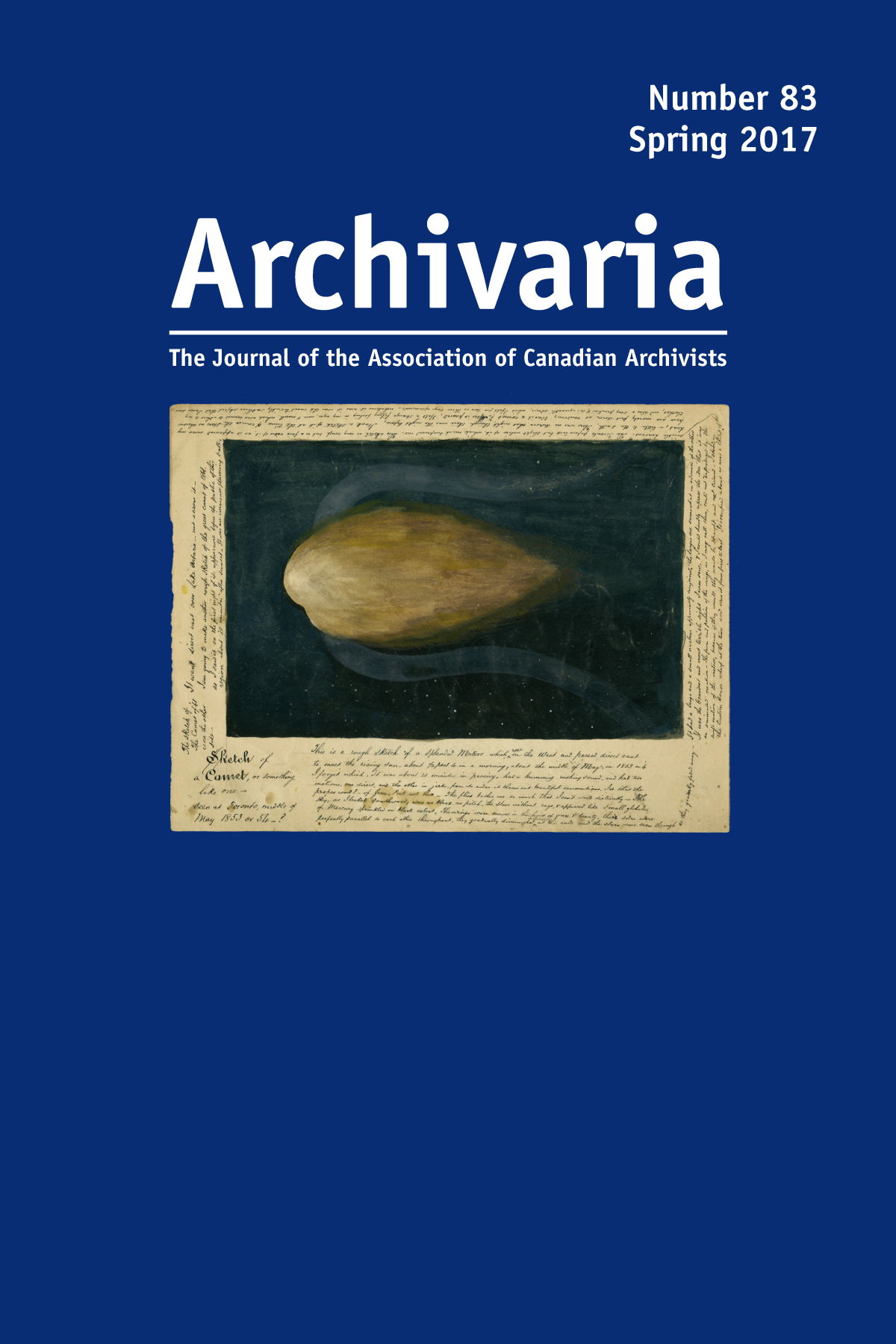Rethinking Archives as Digital: The Consequences of "Paper Minds" in Illustrations and Definitions of E-archives
Résumé
Culture and discourses affect our understanding of the archive in the digital environment: preconceptions, norms, and practices developed in a paper-based administration colour and limit perceptions of digital archives. It can be difficult to reimagine the archive in the context of e-government and the networked environment, where the complexity of archival issues increases. This is a global problem, because the requirements of digital records are different from those of paper records. This article takes a discursive approach, focusing on “openings” and “closings” of concepts surrounding the idea of archives in Swedish municipal governments. Critical theory is used as a lens through which we understand archives in general, and digital archives in particular.
The analysis is made after establishing three basic principles that public administration in Sweden should work toward: (i) adopting a holistic concept of the archive; (ii) taking a proactive approach to records management; and (iii) striving to integrate the archiving process with the goals and opportunities of e-government. The result indicates that the lack of “closings,” i.e., commonly understood principles and a shared definition of an e-archive, may restrict the understanding of archives in digital contexts and constrain the development of their full potential. At the same time, the lack of “openings” toward new ways of thinking about and designing e-archives may narrow the scope of possibilities that the digital formats can offer. “Paper minds” may presuppose a stepwise progression of records, from active to archival, that is unnecessary in the digital context.
RÉSUMÉ
La culture et les discours affectent notre compréhension des archives dans l’environnement numérique : les idées préconçues, les normes et les pratiques développées dans une administration fondée sur le support papier influencent et limitent nos perceptions des archives numériques. Il peut être difficile d’imaginer autrement les archives dans le contexte de la cyberadministration et de l’environnement réseauté dans lequel les questions archivistiques deviennent plus complexes. Ceci est un problème global puisque les exigences en matière de documents numériques sont différentes de celles pour les documents sur support papier. Cet article emprunte une approche discursive, se concentrant sur « les ouvertures » et « les fermetures » de concepts autour de l’idée des archives dans les administrations municipales suédoises. La théorie critique sert de lentille à travers laquelle on peut comprendre les archives de façon générale et les archives numériques de façon particulière.
L’analyse est effectuée après avoir établi trois principes de base que l’administration publique en Suède devrait viser : (i) adopter un concept holistique des archives; (ii) préconiser une approche proactive en matière de gestion de documents; et (iii) s’efforcer d’intégrer le processus archivistique dans les objectifs et les occasions de la cyberadministration. Les conclusions révèlent que le manque de « fermetures », c’està- dire des principes qu’on comprend de la même façon et une définition commune des archives numériques, peut restreindre la compréhension des archives dans des contextes numériques et contraindre le développement de leur plein potentiel. Du même coup, le manque « d’ouvertures » vis-à-vis des nouvelles façons d’envisager et de concevoir les archives numériques peut limiter l’étendue de possibilités que peuvent offrir les formats numériques. « L’esprit papier » peut présupposer une progression par étapes, à partir de stade actif jusqu’au stade archivistique, qui est inutile dans le contexte numérique.
Authors of manuscripts accepted for publication retain copyright in their work. They are required to sign the Agreement on Authors' Rights and Responsibilities that permits Archivaria to publish and disseminate the work in print and electronically. In the same agreement, authors are required to confirm that "the material submitted for publication in Archivaria, both in its paper and electronic versions, including reproductions of other works (e.g. photographs, maps, etc.) does not infringe upon any existing copyright." Authors of manuscripts accepted for publication retain copyright in their work and are able to publish their articles in institutional repositories or elsewhere as long as the piece is posted after its original appearance on archivaria.ca. Any reproduction within one year following the date of this agreement requires the permission of the General Editor.





